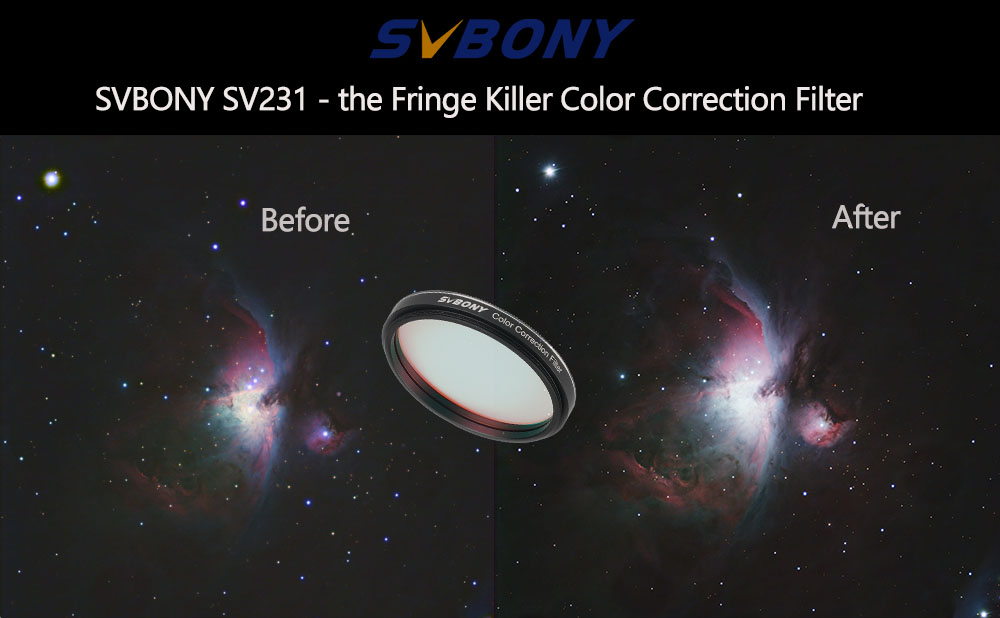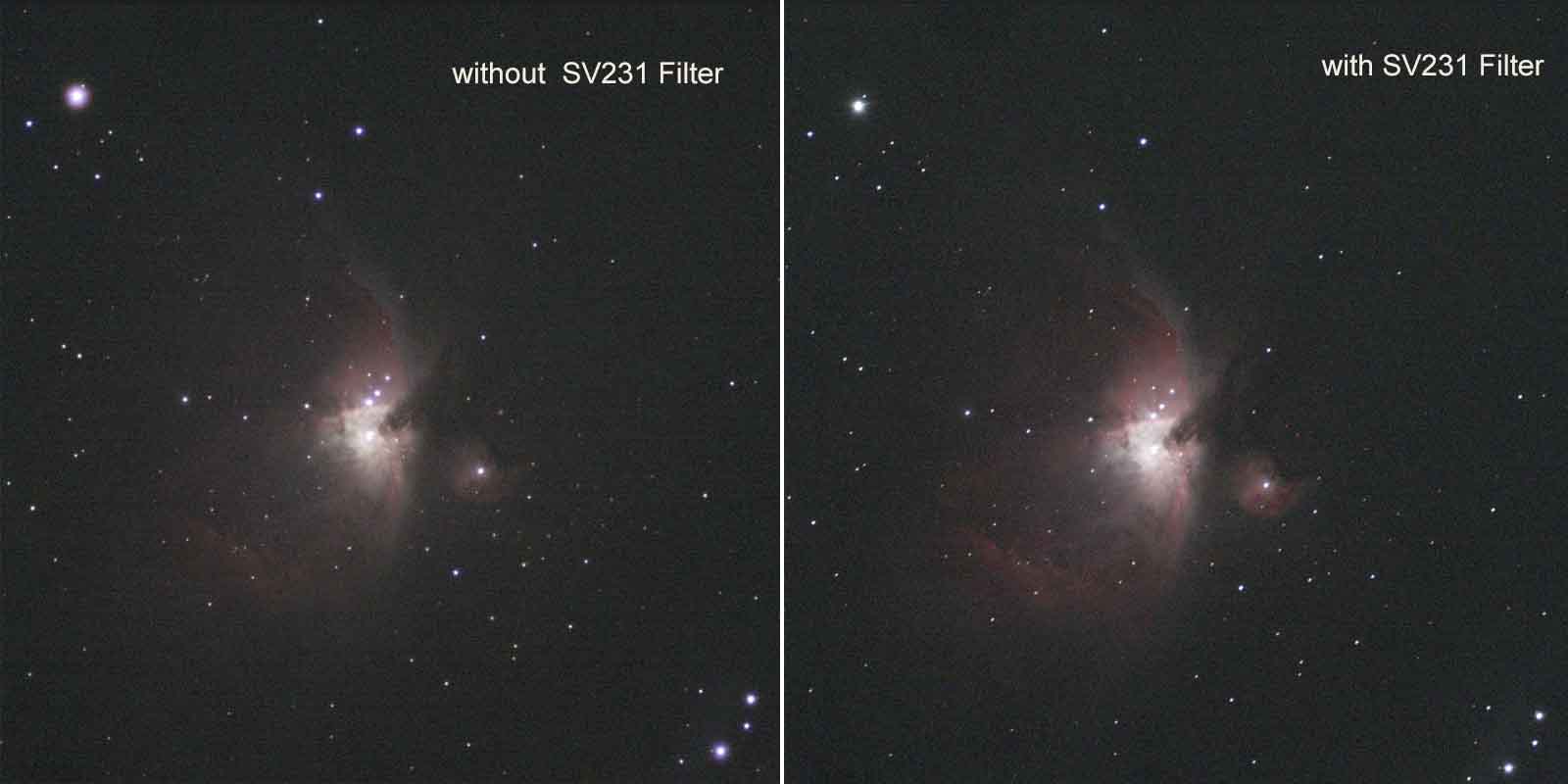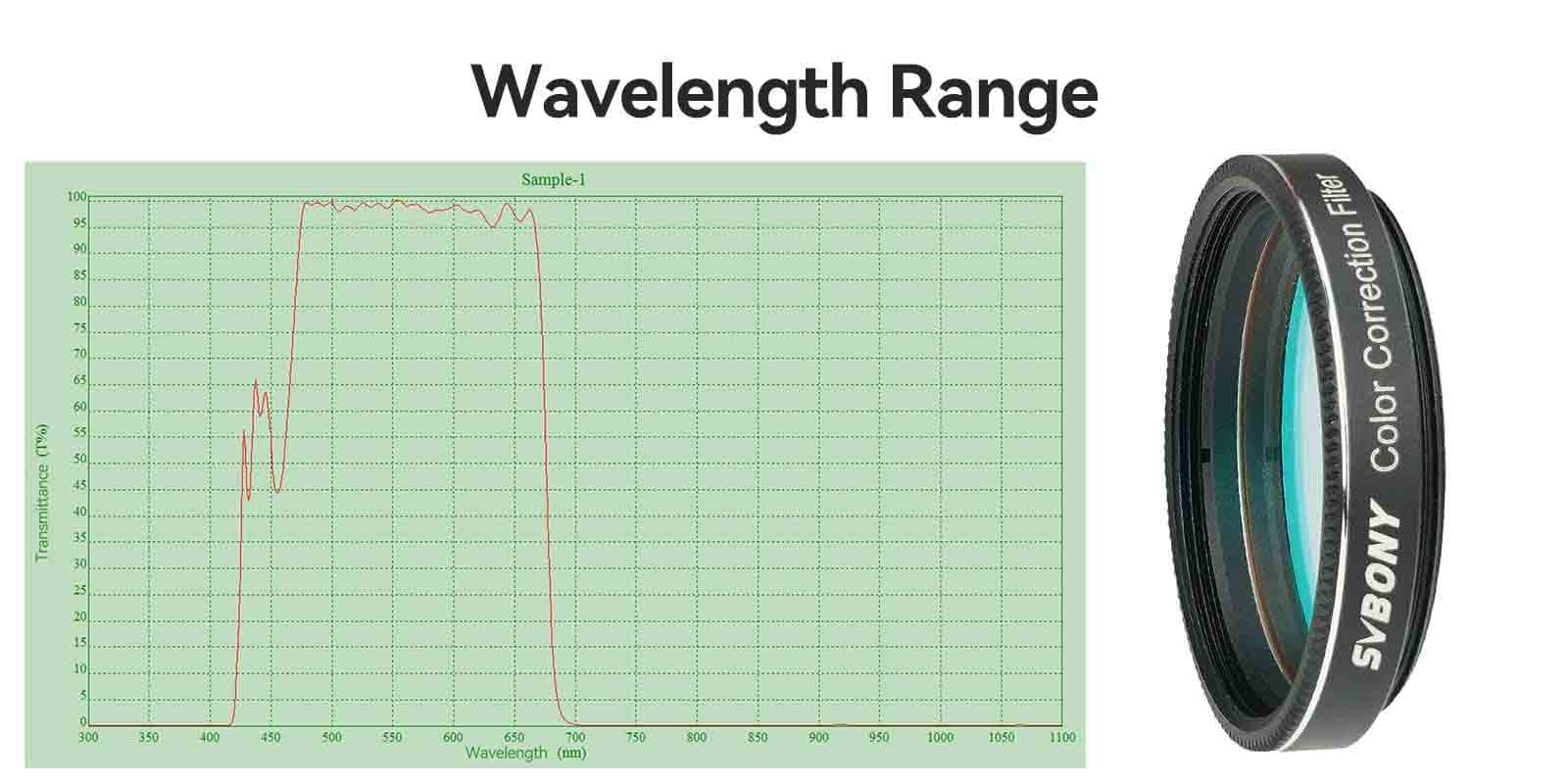Can the SV231 Fringe Killer Filter works for Deep Space Observations?

Can the SV231 Fringe Killer Filter works for Deep Space Observations?
Are you looking to improve your deep space observations? Wondering if the SV231 Fringe Killer Filter can enhance your experience? Let's dive in.
Here is a compilation of shares from several astronomy enthusiasts. We would like to express our gratitude to Leo Yu and Astro Toletum for their sharing.
The SV231 Fringe Killer Filter is a game-changer for astrophotographers using telescopes like the SV48P Achro or the SV503 ED type. By effectively reducing purple fringing, this color correction filter enhances the quality of your images, particularly when capturing celestial wonders like the Orion Nebula.
Take, for example, a recent image of the Orion Nebula captured with an Astrotech 102ED telescope. In the image without the SV231 filter, taken over a 15-second exposure, purple fringing is noticeable. However, with the SV231 filter in place, the fringing is significantly reduced, resulting in sharper stars and a cleaner image overall.

Picture 1 is reviewd and shared by Leo Yu

Picture 2 is reviewd and shared by Astro Toletum
But how does this magic work? Similar to a UHC filter, the SV231 selectively filters out unwanted wavelengths, particularly in the deep blue and violet spectrum. Blue are 500-450nm and violet are 450-380mm; UV are starting around 405mm. SV231 filter about 50% from 460nm to 430nm and about 100% below 420nm (Pls see the details from picture 3). By blocking approximately 50% of the deep blue and all violet light, the astronomy filter ensures better color balance while removing undesirable fringes.

Picture 3 is the wavelength range of SV231 color correction filter
Why focus on these wavelengths? It turns out that many non-APO telescopes prioritize focusing on red and green wavelengths, leading to purple fringing. However, in deep space photography, there's not much that's naturally purple anyway! By allowing blue and green light to pass through while attenuating purple and deep blue light, the SV231 maintains accurate color representation in your images.
In post-processing, the difference is clear. Nebulae appear more neutral in color with the SV231 filter, while areas without the astronomical filter tend to be more blue. This makes the SV231 Fringe Killer Filter an essential tool for beginners in astronomy, enhancing their visual experience and producing stunning images of the cosmos.
Ready to elevate your deep space observations? Consider adding the SV231 Fringe Killer Filter to your astrophotography toolkit today.








